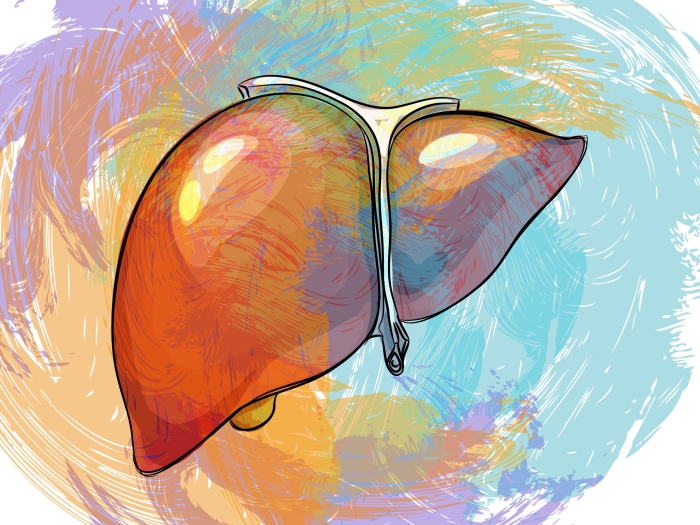Inflammatory bowel disease doesn’t have to ruin your travel plans. A Michigan Medicine IBD specialist shares simple ways to avoid common setbacks.
7:00 AM
Author |

Traveling with inflammatory bowel disease (IBD) can make even a simple trip worrisome. The chronic disease, which causes abdominal pain, diarrhea and cramps, is often unpredictable.
MORE FROM MICHIGAN: Sign up for our weekly newsletter
That's why planning ahead to avoid common problems is key, says Michigan Medicine IBD specialist Jami Kinnucan, M.D.
She and her team regularly offer travel advice for IBD patients, some of it gleaned from the Crohn's & Colitis Foundation.
Kinnucan shared strategies to try before hitting the road:
How to travel with IBD
Be sure you're covered: Before a big trip, "the first step is contacting your insurance company," Kinnucan says. Insurance companies have rules to follow should an emergency or a flare-up arise away from home. Knowing those rules means avoiding a big medical bill upon return. It also gives your treating gastroenterologist parameters when creating a treatment plan.
Health insurance carriers often provide international medical coverage to travelers going overseas. Ask if yours does so you'll know how best to handle emergency room and doctor visits, getting prescription medication, screenings and other situations.
SEE ALSO: Sick While Traveling? Here's What to Do (and How to Prevent It)
Meanwhile, don't forget to notify your gastrointestinal (GI) doctor about the trip. Kinnucan recommends letting your doctor know if you plan to leave the United States because "there are some travel destinations that might require a live vaccination. This is important, as live vaccinations are contraindicated in patients on certain therapies."
Pack the paperwork: Have a formal, typed letter from your GI health care provider detailing your medical condition and its history, plus your medications and required dosages. If you're using injectable therapies, carry that letter to reduce security questions regarding syringes in an airplane carry-on.
When traveling abroad, have the paperwork and any special instructions for issues such as ostomy care translated to the local language. Similarly, learn key phrases such as, "Where is the bathroom?" and "I need to go to the hospital."
Likewise, secure a list of physicians your doctor recommends in that city or country should an emergency arise.
"Many of my colleagues in the United States and in other countries know each other through attending conferences, I am often able to provide patients with names of an IBD provider in the area that they are traveling," Kinnucan says. "I'm asked so often that I have a template for this."
Bringing a restroom access card is also a must for travelers. Some state laws require businesses that lack public restrooms to grant IBD patients access to private or employee facilities. This can be obtained through your GI health care provider.
Stockpile supplies: Kinnucan has received plenty of panicked phone calls from patients who forgot to pack their medications or have run out. "Always take enough medicine for your entire trip and a few days extra and put it in your carry-on bag — not in your checked bag, in case it gets lost," she says.
Consider packing flushable wipes and a change of clothes as a precaution.
SEE ALSO: Mental Health Therapy Can Help IBS, IBD Patients Manage
"Patients who use tube feeds or enteral nutrition (a liquid diet) may obtain the nutrition in powder form to mix with water if refrigeration isn't available," Kinnucan says.
"A patient of mine who requires nightly tube feeds spends winters in Florida, and it was a matter of finding a local delivery company to bring the tube feeds that he needed," she says, noting that the powder formulation was handy until securing a local delivery service.
Kinnucan also advises patients to follow the same eating habits they keep at home, with one exception: Drink only sanitized or bottled water when abroad. "I tell patients to grab a water bottle even when brushing their teeth, as the risk of using unsanitized water in patients who are predisposed to GI illnesses could ruin a vacation," she says.
Know the landscape: Simple preventive research helps lessen anxiety when traveling with IBD.
Find out the bathroom location before arriving at each destination, Kinnucan suggests. You can also ease your journey by calling your airline, train or bus carrier to request a seat near the restroom. If taking a road trip, log the rest stop locations along the way.
"Travel is possible and exciting for all of our patients as long as they plan ahead," Kinnucan says. "Work with your GI health provider to make sure all your bases are covered so there are no issues when you get to your destination."
To make an appointment with a Michigan Medicine gastroenterologist, call 888-229-7408.

Explore a variety of healthcare news & stories by visiting the Health Lab home page for more articles.

Department of Communication at Michigan Medicine
Want top health & research news weekly? Sign up for Health Lab’s newsletters today!





